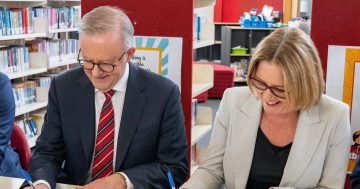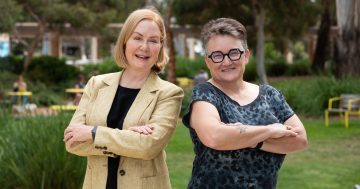 The Commonwealth, States and Territories have been invited to draw up a new agreement relating to vehicle driving by students in the nation’s schools and classrooms.
The Commonwealth, States and Territories have been invited to draw up a new agreement relating to vehicle driving by students in the nation’s schools and classrooms.
The move for the new agreement has been called by the Productivity Commission (PC) following a new report it published in which it recommended driving arrangements be changed in schools and classrooms.
Commissioner at the PC, Natalie Siegel-Brown said the Review of the National School Reform Agreement Interim Report examined how well national policy initiatives had achieved the objectives and outcomes set out in the current agreement.
Ms Siegel-Brown said the five-year, 2018 National School Reform Agreement (NSRA) is a joint agreement between the Commonwealth, States and Territories to lift student outcomes across Australian schools.
She said the review found the next Agreement should place greater weight on overall student wellbeing, improving equity and quality teaching.
“The NSRA was a promising start and shows the commitment of jurisdictions to work together,” Ms Siegel-Brown said.
“It has put in place some important foundational elements, such as establishing the Australian Education Research Organisation, but more still needs to be done to deliver on the ambition of the agreement,” she said.
“Our Interim Report proposes Governments concentrate on three areas where we believe their working together will make the greatest difference.”
Ms Siegel-Brown said that while a student’s wellbeing was often influenced by what was happening outside the school gates, poor wellbeing could be exacerbated by a lack of awareness on the part of teachers and school leaders.
She said research had shown that wellbeing influenced a student’s ability to engage and learn.
“We must do more to prevent students from falling behind and help those who are struggling to catch up with their peers,” she said.
“Unfortunately, we persistently fall short of the ideal of an equitable education for all students.
“Every year, between five and nine per cent of Australian students do not meet year-level expectations in either literacy or numeracy.”
Ms Siegel-Brown said low educational performance needed a different approach.
“We have an opportunity with the next Agreement to drive real improvements on the ground,” she said.
“Getting our education system up to an A-grade will require a long-term coordinated approach while allowing for local solutions.”
Ms Siegel-Brown said the Commission was seeking input until 21 October to inform its final report.
The Productivity Commission’s 253-page Interim Report can be accessed at this PS News link.











